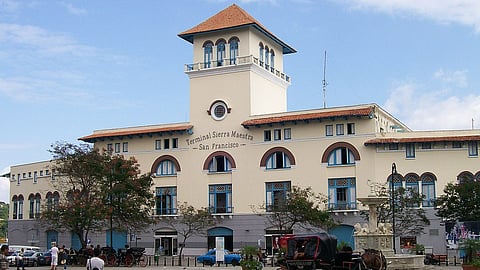

The US Supreme Court agreed on Friday to hear ExxonMobil's bid to obtain compensation from Cuban state-owned firms for oil and gas assets seized in 1960 under a federal law that lets Americans sue foreign companies and individuals over property confiscated by the communist-ruled Caribbean country.
The justices took up Exxon's appeal of a lower court's ruling that undercut its legal efforts to win such compensation from Cuban state-owned companies that allegedly have profited from stolen property in litigation invoking a 1996 US law called the Helms-Burton Act.
The court also took up a similar bid by a Delaware-registered company that built port facilities in Havana seized in 1960 by Cuba's government to revive $440 million in judgments against Carnival, Norwegian Cruise Line and two other cruise lines that have used the terminal.
The Supreme Court is due to hear arguments in the cases during its new nine-month term that starts on Monday.
The Exxon dispute relates to former Cuban leader Fidel Castro's confiscation of all of its oil and gas assets in Cuba - a loss valued at more than $700 million today. Cuba has never paid any compensation to Exxon, but the Helms-Burton Act gave the oil company an opening to sue for damages in US court.
The Helms-Burton Act allows US nationals who owned property in Cuba to sue anyone who, "traffics in property which was confiscated by the Cuban Government on or after January 1, 1959." It also authorizes the US president to suspend that provision if deemed, "necessary to the national interests of the United States."
Exxon filed a lawsuit in 2019, seeking compensation from three Cuban state-owned companies it said continue to hold and profit off their stolen property. Those Cuban state-owned companies are Corporación Cimex (Cuba), Corporación Cimex (Panama) and Unión Cuba-Petróleo. Years of litigation followed, focused on jurisdictional questions rather than liability.
The US Court of Appeals for the District of Columbia Circuit concluded that plaintiffs bringing cases under the Helms-Burton Act must satisfy an exception under a different US law, the Foreign Sovereign Immunities Act, which shields foreign governments from lawsuits in the United States unless an exception applies.
In the cruise lines dispute, Havana Docks Corporation sued four cruise lines - Carnival, Norwegian, Royal Caribbean Cruises and MSC Cruises - in federal court in Florida in 2019. Havana Docks built piers at the port prior to Cuban Revolution of the 1950s and is seeking compensation from the cruise operators because they used that property from 2016 to 2019.
Shortly after coming to power in 1959, Cuban leader Fidel Castro nationalized and expropriated property held by US companies including Havana Docks, which had a 99-year concession for the construction and operation of piers at the port of Havana, granted in 1934 by Cuba's government.
Cuba has never paid any compensation to Havana Docks, but the Helms-Burton Act gave the company an opening to sue for damages in US court.
A federal judge ruled that the cruise lines had engaged in trafficking by having their ships dock at the terminal and imposed judgments of more than $100 million against each of the four.
The Atlanta-based 11th US Circuit Court of Appeals threw out those judgments last year, finding that Havana Docks did not have a viable claim because its concession would have expired in 2004, well before the cruise lines used the facilities.
US presidents of both parties opted to suspend the law, meaning private lawsuits could not go forward.
But President Donald Trump lifted that suspension in 2019 during his first term in office, unleashing a wave of litigation in US courts against Cuban state-owned entities and a few American companies that were accused of trafficking in confiscated property.
(Reporting by Jan Wolfe; Editing by Will Dunham)
